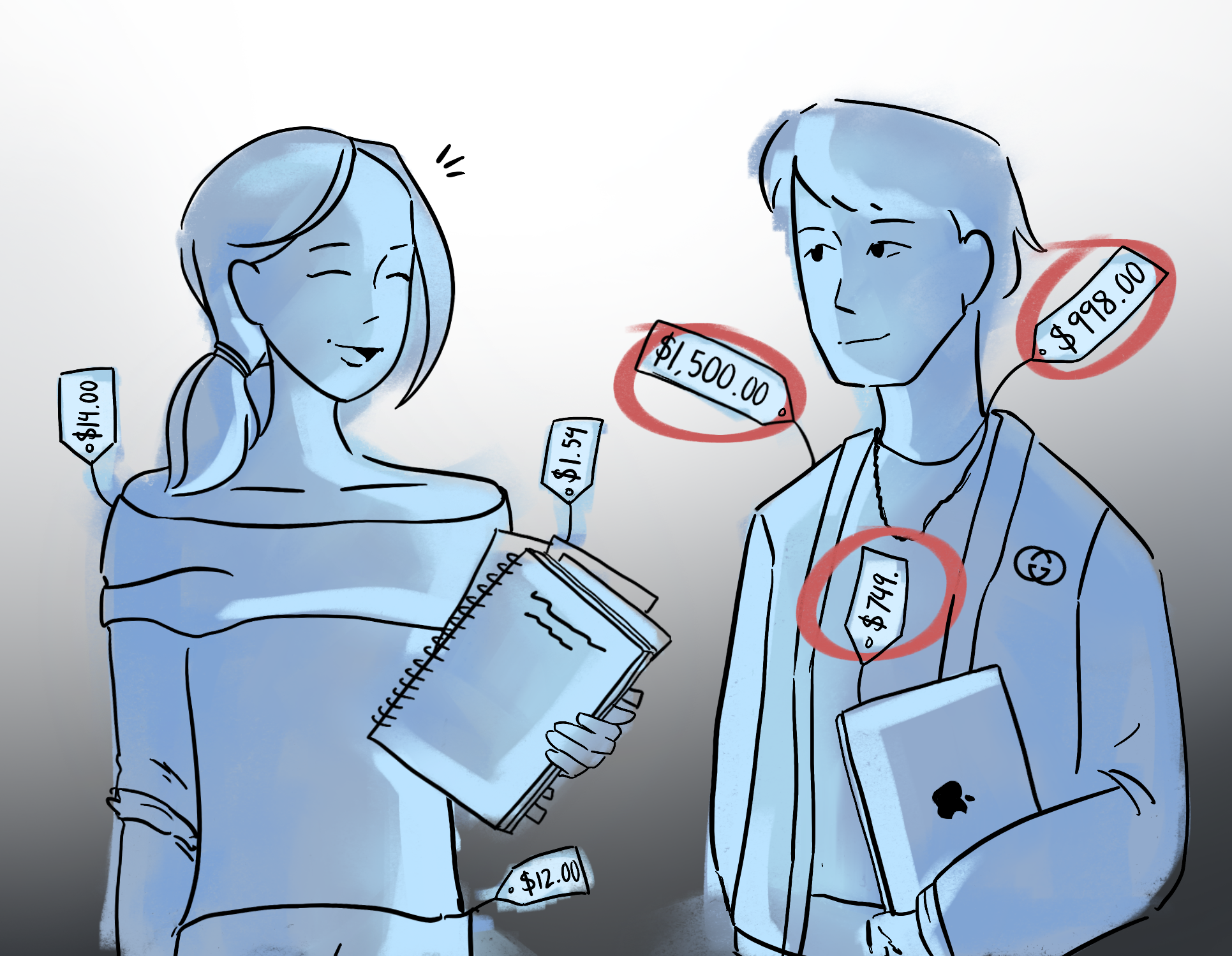This year’s upper school tuition for Harker students is $64,800. Behind this number lies an often overlooked reality: around 10% of all students K-12 receive some form of financial aid. With strict rules on conversations around aid, recipients grapple with a complicated question: should they openly discuss the aid that they receive?
Harker grants need-based aid to students in a separate, confidential application form, keeping the application to Harker largely need-blind. However, according to the email sent to recipients, students on aid who share the terms of their agreement risk losing it completely.
An anonymous financial aid recipient recalled volunteering at an Open House and struggling to answer when asked about financial aid.
“The biggest question was financial aid and a lot of the families kept asking us in Spanish, ‘Well, how much do you pay?’” they said. “‘It’s 65K. I can’t pay that. How much did they take off?’ And we weren’t by contract allowed to say anything. That harms how many people Harker can accept because that could have been an amazing kid to have in our program, and we weren’t able to give that kid an opportunity because they didn’t know what resources were available.”
Harker’s financial aid department strongly encourages students and families to keep information about financial aid confidential.
“This information is a confidential agreement between the school and the recipient’s family,” the email sent to recipients of financial aid reads. “Just as the school respects the family’s privacy, we anticipate that families will respect the confidentiality of this agreement and not discuss the terms of their award with others. Failure to respect this confidentiality may result in the loss of the award.”
Director of Admissions Danielle Holquin clarified in an email that students may share that they are on financial aid, but they cannot discuss the amount or terms of their award.
The administration’s restrictions on discourse surrounding financial aid contracts may lead recipients to avoid talking about it completely. As a result, most teachers and students are unaware of who is on aid. To avoid comparisons or prejudice at school, students largely do not discuss the topic at all.
Some students, like junior Kaitlyn Nelson, believe that avoiding conversations about socioeconomic status at school helps keep all students on equal footing.
“I actually think it’s good that we don’t talk about it much because it’s not really relevant,” Kaitlyn said. “We shouldn’t be worrying about what other people’s parents are doing. We should be worrying about our own success.”
Holquin encourages students to avoid telling others that they are on aid, describing it as “best practice” rather than a set requirement. She reiterated the importance of aid at Harker in fostering the growth of a diverse group of students.
“There’s an assumption that everyone can afford it and that is not the reality,” Holquin said. “We don’t talk about it because we don’t want anyone to feel different — who is on vs who is not. It’s up to family choice if students want to talk about it. I think it’s best practice to not because we do not want a further divide.”
Despite advising against open conversation between students, the administration tries to uphold transparency during the application and admission process, as described by Mary Ortiz, who guides parents through the financial aid process.
“We don’t go out of our way to hide that we offer financial aid,” Ortiz said. “We let them know that it’s available. And when we do admissions, we don’t consider their socioeconomic status when we look at their application. If you want to apply for financial aid it’s completely separate. We try to keep it as need-blind as possible to give everyone a fair chance.”
While the lack of discourse and confidentiality around financial aid may provide some students comfort, others call for open conversation.
“It helps some students, and I understand why it’s there,” the anonymous student said. “But at the same time, it’s pushing away real-life struggles and not showing the reality of the situation, and the reality that I’m here not because I have the money, but because I made it. I have this opportunity and that’s something that we should be proud of.”
Given the large number of students on aid, Harker houses a large breadth of socioeconomic diversity. The student felt frustrated that conversations on this type of diversity are often abbreviated or overlooked.
“Especially with all the diversity [Harker emphasizes,] I feel like we don’t bother to have these conversations and learn from people’s experiences,” they said. “We all come from different backgrounds and when we don’t talk about that, we’re not aware that people do receive aid. When I hear people actually talking about their life and being vulnerable, that is what makes a good connection.”




